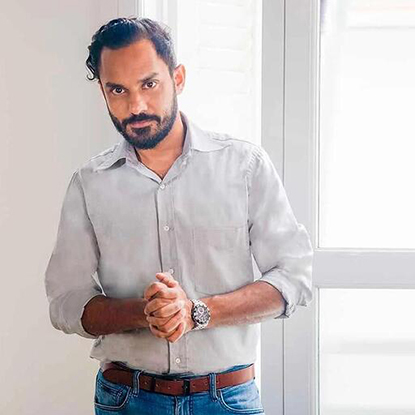Getting lured in by freebies can be a costly mistake. Read our 7-point checklist to see if buying insurance in Singapore is the right financial decision for you.
I came across a recent article in The Straits Times about the unfortunate plight of an admin executive whose purchase of an endowment insurance policy turned out to be a costly mistake. It was both disheartening to read but also a constant reminder of how much we can learn when it comes to insurance and personal finance products.
As a former banker, I've seen this happen numerous times: consumers making financial decisions based on the freebies they get rather than what they need. And it's not just for insurance. I have also observed customers apply for credit cards and personal loans only because of the free luggage or voucher.
Every parent worries about the well-being of their children in case of death, critical illness, or permanent disability. Loss of income can cause a financial crisis, compounded with sadness and grief. Besides protecting their dependents against these unforeseen situations, parents also get insurance to accumulate savings that can use to pay for their children's higher education. In Singapore, university tuition fees can easily cost over $100,000.
Before purchasing an insurance policy, take a step back and assess a few things. I have prepared a 7-point checklist which I hope you will find useful if you are thinking of purchasing insurance yourself.
1. Understand Your Current Financial Health
What is your current household income and who is the highest earner in the family? What is your monthly expenditure? Liabilities? take your last few months bank and credit statements and do some quick accounting of your earnings, expenditure and liabilities.
2. Ask Yourself If You Really Need an Insurance Policy
If you do not have dependents, then you don't really need an insurance policy. If you do have dependents, then ask yourself: what would happen financially to these dependants in the event of your death, critical illness or permanent disability? If there is little financial impact, then chances are you still don't need an insurance policy.

3. If Yes, What Type of Insurance Policy Do You Need?
If you do have dependents and are worried about their financial well-being, then you need to know which type of life insurance you need. There are two basic types of insurance:
Term Insurance
You will pay annual premiums every year for a fixed term and you are guaranteed a payout in the event of death during this period. While picking this type of insurance, you need to ask yourself for how long would you like the term to be. If it's too short, then chances are your dependents won't get covered. If its too long, then you may end up paying a lot on annual premiums with no payout or return. Having performed exercise in Step 1, you should be able to identify the amount you need to secure and for how long for your dependents.
Whole Life Insurance
This is life-long protection for your dependents where you are guaranteed a payout in the event of death. You pay annual premiums for a certain period of time (say 12 year), are covered until certain age (say 100 years old) are guaranteed payout upon death. The annual premiums for these will be more expensive than term.
Related Article: 5 Simple Mistakes Singaporeans Make When Buying Insurance
4. Do You Need an Endowment Policy?
Endowment policies allow you to save money to meet financial goals, like paying for your children's higher education. Endowment policies have guaranteed payout component, i.e. the 2nd option of endowment where you pay $37k a year for 12 yrs has a guaranteed payout of $500,000 upon maturity.
To avoid situations where you are not guaranteed any returns or are at risk of receiving a lower return that total premium you paid, pick a policy with a guaranteed payout component and check the payout amount.
5. Disclose Everything Up-Front to Reduce Risk of Non-Payout
It is always better to declare all questions truthfully to avoid any issues later. This should include all past conditions and any risks. If not, your insurer may use 'non-disclosure' as a clause not to pay out.
6. Compare Insurance Products
There are lots of tools available publicly to compare insurance policies. Invest some time to research and shop around before you choose to apply for a policy. Speak to several insurance brokers and ask them to walk you through all insurance options before making your final decision.
7. Change Your Lifestyle
Besides lowering the risk of death or disability, a healthier lifestyle means a cheaper annual premium and cover. Make better lifestyle choices such as eating nutritious food, getting plenty of exercise, and quitting smoking.
By asking yourself these questions, you can determine whether buying insurance in Singapore is the best financial decision for you and your loved ones--regardless of what free gifts come with it.
You Might Also Want to Read:
Smartphone Insurance: Not Just for Clumsy Singaporeans
What Are You Doing to Plan For Your Retirement?
INFOGRAPHIC: How Much Money Can You Save by Quitting Smoking?

By Rohith Murthy
Rohith leads Singapore’s SingSaver.com.sg, a financial comparison site aimed at helping consumers in Singapore save money and time by finding the right financial products.
Similar articles
All You Need To Know About Insurance Policies
7 Factors to Consider Before Buying a Car in Singapore
Is Insurance An Expense Or An Asset?
Buying Direct Purchase Insurance Without An Agent? Read This Guide First
5 Best Term Insurance Plans In Singapore (2025)
What Most Singaporeans Don’t Know About Insurance Returns
6 Signs You Need an Insurance Rider For Your Insurance Plan
Civil Service Bonus – Breakdown Over the Years (2025)










